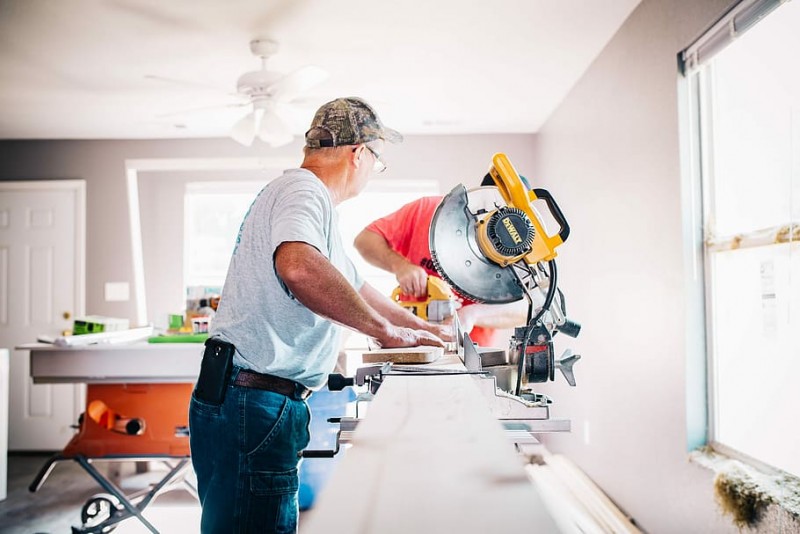
Investing in home improvements is a common desire for homeowners seeking to enhance their living spaces. However, not all upgrades are created equal. Some improvements might actually lead to money wastage rather than adding value to your property. In this article, we'll dissect various renovation pitfalls and provide insight into how to avoid them.
1. Over-the-Top Landscaping
Landscaping can add aesthetic appeal, but excessive spending might not yield proportionate returns. Outlandish garden designs and intricate features can quickly drain your budget without significantly impacting the home's resale value.
2. Lavish and Trendy Kitchen Remodels
A lavish kitchen remodel might seem enticing, but spending a fortune on high-end appliances and designer finishes might not recoup your investment when it's time to sell.
3. Excessive Room Additions
Adding extra rooms can lead to inflated construction costs and permit fees. It's crucial to consider whether the added square footage will translate into higher property value.
4. Overemphasis on High-Tech Smart Homes
While smart home technology offers convenience, overloading your home with high-tech gadgets can strain your budget and might not necessarily boost your home's appraisal value.
5. Extravagant Bathroom Upgrades
Bathroom upgrades can range from essential fixes to luxurious overhauls. Being judicious about which improvements are truly necessary can prevent overspending.
6. Installing Elaborate Pools and Spas
Pools and spas are attractive additions, but the initial investment, ongoing maintenance, and potential safety concerns can outweigh their perceived benefits.
7. Ignoring Energy Efficiency
Neglecting energy-efficient upgrades might result in higher utility bills and deter eco-conscious buyers when you decide to sell.
8. Premium Fixtures and Finishes
While high-quality fixtures can elevate your home's appearance, overdoing it with premium finishes in every room can lead to overspending.
9. Converting Bedrooms into Non-Traditional Spaces
Converting bedrooms into unconventional spaces like home offices or gyms might limit your home's appeal to potential buyers who prioritize traditional bedroom layouts.
10. DIY Projects with Limited Skills
While DIY projects can save money, attempting complex renovations without adequate skills can result in costly mistakes that require professional intervention.
Conclusion
In the pursuit of creating the perfect home, it's essential to strike a balance between your dreams and financial reality. Avoiding money-wasting improvements requires careful planning, research, and a realistic assessment of potential returns on investment.
Investing in home improvements is a common desire for homeowners seeking to enhance their living spaces. However, not all upgrades are created equal. Some improvements might actually lead to money wastage rather than adding value to your property. In this article, we'll dissect various renovation pitfalls and provide insight into how to avoid them.
1. Over-the-Top Landscaping
Landscaping can add aesthetic appeal, but excessive spending might not yield proportionate returns. Outlandish garden designs and intricate features can quickly drain your budget without significantly impacting the home's resale value.
2. Lavish and Trendy Kitchen Remodels
A lavish kitchen remodel might seem enticing, but spending a fortune on high-end appliances and designer finishes might not recoup your investment when it's time to sell.
3. Excessive Room Additions
Adding extra rooms can lead to inflated construction costs and permit fees. It's crucial to consider whether the added square footage will translate into higher property value.
4. Overemphasis on High-Tech Smart Homes
While smart home technology offers convenience, overloading your home with high-tech gadgets can strain your budget and might not necessarily boost your home's appraisal value.
5. Extravagant Bathroom Upgrades
Bathroom upgrades can range from essential fixes to luxurious overhauls. Being judicious about which improvements are truly necessary can prevent overspending.
6. Installing Elaborate Pools and Spas
Pools and spas are attractive additions, but the initial investment, ongoing maintenance, and potential safety concerns can outweigh their perceived benefits.
7. Ignoring Energy Efficiency
Neglecting energy-efficient upgrades might result in higher utility bills and deter eco-conscious buyers when you decide to sell.
8. Premium Fixtures and Finishes
While high-quality fixtures can elevate your home's appearance, overdoing it with premium finishes in every room can lead to overspending.
9. Converting Bedrooms into Non-Traditional Spaces
Converting bedrooms into unconventional spaces like home offices or gyms might limit your home's appeal to potential buyers who prioritize traditional bedroom layouts.
10. DIY Projects with Limited Skills
While DIY projects can save money, attempting complex renovations without adequate skills can result in costly mistakes that require professional intervention.
In the pursuit of creating the perfect home, it's essential to strike a balance between your dreams and financial reality. Avoiding money-wasting improvements requires careful planning, research, and a realistic assessment of potential returns on investment.
10 little-known advantages of running